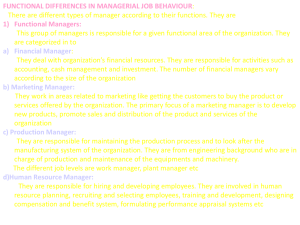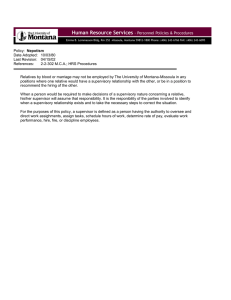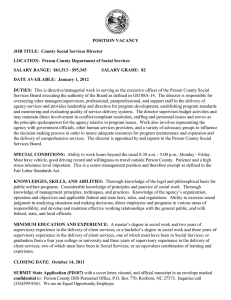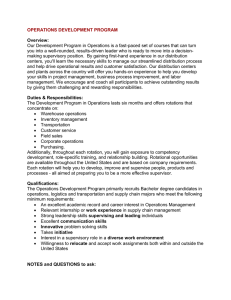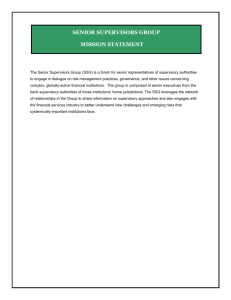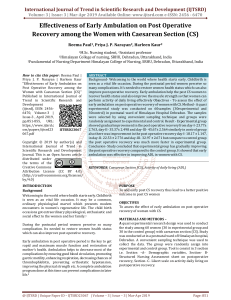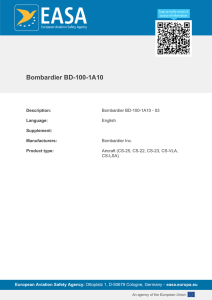Low level - Supervisory - Operative - First-line managers
advertisement
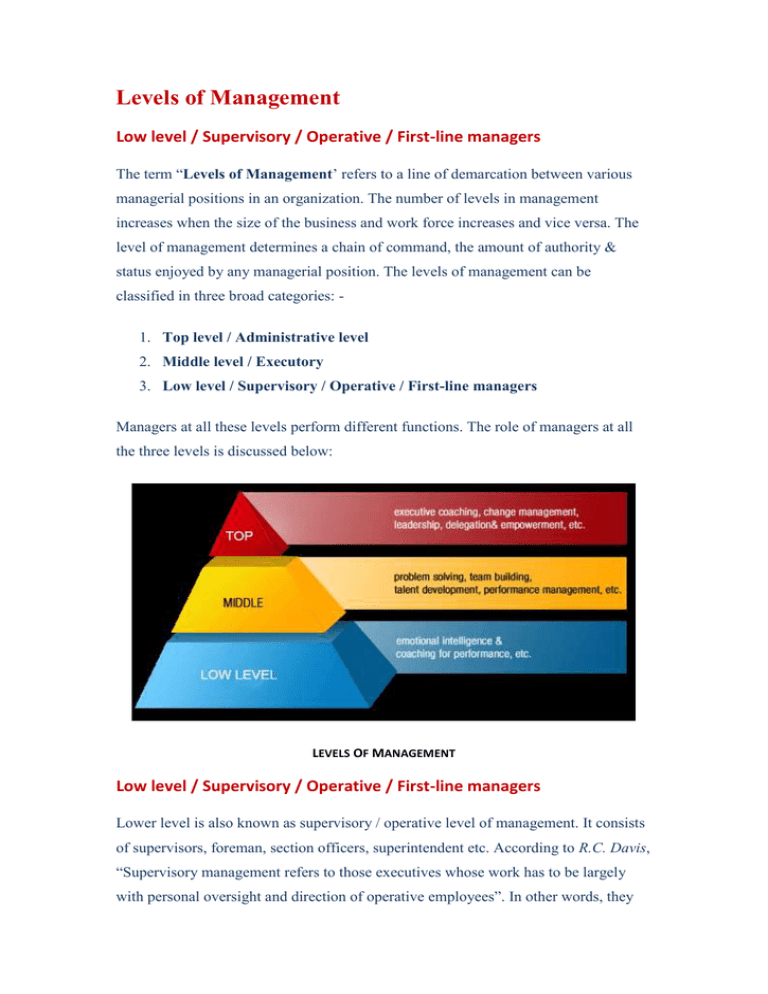
Levels of Management Low level / Supervisory / Operative / First-line managers The term “Levels of Management’ refers to a line of demarcation between various managerial positions in an organization. The number of levels in management increases when the size of the business and work force increases and vice versa. The level of management determines a chain of command, the amount of authority & status enjoyed by any managerial position. The levels of management can be classified in three broad categories: 1. Top level / Administrative level 2. Middle level / Executory 3. Low level / Supervisory / Operative / First-line managers Managers at all these levels perform different functions. The role of managers at all the three levels is discussed below: LEVELS OF MANAGEMENT Low level / Supervisory / Operative / First-line managers Lower level is also known as supervisory / operative level of management. It consists of supervisors, foreman, section officers, superintendent etc. According to R.C. Davis, “Supervisory management refers to those executives whose work has to be largely with personal oversight and direction of operative employees”. In other words, they are concerned with direction and controlling function of management. Their activities include a. Assigning of jobs and tasks to various workers. b. They guide and instruct workers for day to day activities. c. They are responsible for the quality as well as quantity of production. d. They are also entrusted with the responsibility of maintaining good relation in the organization. e. They communicate workers problems, suggestions, and recommendatory appeals etc to the higher level and higher level goals and objectives to the workers. f. They help to solve the grievances of the workers. g. They supervise & guide the sub-ordinates. h. They are responsible for providing training to the workers. i. They arrange necessary materials, machines, tools etc for getting the things done. j. They prepare periodical reports about the performance of the workers. k. They ensure discipline in the enterprise. l. They motivate workers. m. They are the image builders of the enterprise because they are in direct contact with the workers. http://www.managementstudyguide.com/management_levels.htm
